Delivering Results
11. Community Participation
Pennsylvania
Leading Example
PA Heart & Soul creates residentially driven plans that guide future town planning. In this process, residents are brought together to identify what matters most and reflect on what they love about their towns. The process ensures that all voices are heard, particularly ones that are often missing from these types of discussions. The Department of Community and Economic Development (DCED) partners with the PA Humanities Council and Community Heart & Soul on this initiative.
PennDOT strives to attract businesses, employees, and stimulate the economy through compliance functions and outreach activities. PennDOT has several equal opportunity initiatives:
1. the Paths to PennDOT Workshops initiative to assist disadvantaged business enterprises (DBEs) in learning about PennDOT and how to secure future contracting opportunities
2. The Mentor Protégé Program (MPP) to increase diversity and participation in the DBE Program through outreach to underserved and underrepresented companies. MPP directly addresses PennDOT’s 2018 Disparity Study findings. MPP teams up contractors and new DBE subcontractors so that new subcontractors can learn how to grow their business. PennDOT partners with its DBE Supportive Services Center to provide training, technical assistance, and business development services to DBE firms to enable them to acquire the proficiency, experience, and expertise necessary to compete on an equal basis, with non-DBE firms for federally assisted PennDOT contracts and subcontracts. An upcoming disparity study will provide the most up-to-date information to create new opportunities and address identified barriers.
Governor’s Commissions on African American Affairs, Asian American and Pacific Islander Affairs, Latino Affairs, LGBTQ Affairs, Women, and Next Generation Engagement, with leading and respected executive directors and more than 120 commissioners appointed by the Governor, help in making state government accountable and responsive to the needs of historically underserved communities by advising the Governor, Cabinet, and all agencies under the Governor’s jurisdiction on policies, legislation, and programs to advance the status of those communities.
DHS has a rich history of engaging stakeholders and seeking feedback on the policies and programs utilized by those groups. The Office of Developmental Programs is in the process of engaging its stakeholders for feedback on a selective contracting proposal. Also, the Medical Assistance Transportation Program has conducted dozens of consumer listening sessions to improve non-emergency medical transportation; the Enrollment Assistance Contractor convenes regular consumer advisory committee meetings that provide input about the HealthChoices consumer experience; and, since 2019, DHS has worked closely with advocates and families to develop interventions to address the challenges children experience when receiving pediatric shift care services.
Promising Examples

California
California
The Office of Data and Innovation takes a human-centered design approach to projects across the state, engaging directly with users of government services to ensure they are easy to use and meet resident needs. A recent example includes a partnership with the Department of Toxic Substances Control (DTSC). In an effort to increase public comment, ODI and DTSC worked on expanding engagement with Californians. We wanted to reach communities that historically lack a voice in decisions, which we were able to do successfully by meeting people where they are, making it easier to participate in the public engagement process, and involving a wider community.
The California Cradle-to-Career Data System has a comprehensive and inclusive governance system. The Executive Director reports to the 21-person governing board made up of representatives from data providers, policymakers, and the community. Additionally, two formal 16-person Advisory Boards on data and tools and community engagement have a formal process for publicly discussing, voting on, and advancing recommendations about C2C’s work. The data system also has community conversations, open meetings, and other ways to get involved, maximizing community input. This structure is intended to make the system the most inclusive and actionable data system in the country.
The Strategic Growth Council provides technical assistance programs and guidance to help communities, particularly disadvantaged, low-capacity ones, to apply for and execute large state grants, including greenhouse gas measurements and projections, and assessing the potential impact of the projects. This assistance allows more communities to formulate robust plans and partnerships with the state to achieve climate-goals. They have also evaluated their TA programs several times and track demographics of technical assistance providers to help diversify the pool.

Colorado
Colorado
In 2021, HB21-1266 authorized the creation of the Environmental Justice Program within the Colorado Department of Public Health and Environment (CDPHE). The department’s goal was to address environmental justice inequities through increased community engagement and cooperation between state, tribal, and local governments. CDPHE provides inclusive access to Air Quality Control Commission meetings and Greenhouse Gases (GHG) rulemaking. Services provided by CDPHE include translation services, community connector programs, 30-day notices of meetings, virtual/online meetings, and increased accessibility services. HB21-1266 ensures greater community involvement and due process in all phases of environmental law and policy. The Environmental Justice Task Force must submit the recommendations by November 14, 2022.
The Enviroscreen Tool, developed by CDHPE, generates “scores” using census and environmental data to visualize the level of unjust environmental impact across the state. The tool provides greater transparency for communities that face greater environmental burdens. CDPHE also provides The Environmental Justice Report Tool for Regulation 3 for air pollution permit applicants to use when implementing the Disproportionately Impacted (DI) Community Permitting Rule adopted by the AQCC in May 2023.
After the passage of the American Rescue Plan Act (ARPA) in March 2021, Colorado initiated the “Build Back Better Tour” to gather input from residents and stakeholders on the challenges they were facing. Housing, mental and behavioral health, workforce development, and targeted economic relief were identified as key areas for transformative investment. A strategic recovery framework was developed based on bipartisan engagement and robust public input, aiming to build back a stronger Colorado. The tour highlighted the opportunity to use ARPA funds for once-in-a-generation transformational change in the state.

Connecticut
Connecticut
In late 2022, the U.S Department of Commerce’s National Telecommunications and Information Administration (NTIA) awarded the Commission for Educational Technology, part of the Department of Administrative Services, with $736,000 to develop a statewide Digital Equity Plan (www.CT.gov/DigitalEquity). The goal of this plan is to ensure that all residents have access to and can utilize technology for learning, career advancement, leveraging state services, health and wellness, and overall participation in society. Through community outreach, statewide surveys, the development of an “asset map” of existing supports, and other measures, the Commission is working to identify barriers to digital equity: broadband, devices, training, technical support, and services for every resident. The program prioritizes the needs of traditionally disadvantaged groups, including aging individuals (60+); those incarcerated in State facilities; individuals with a language barrier; those with disabilities; members of the LGBTQ+ community; low-income households; racial, ethnic, and religious minorities; rural residents; veterans; and women. The Digital Equity Plan is expected to be completed and submitted to the NTIA in the fall of 2023, with implementation funding expected in 2024.
In April, 2022, OPM, the Department of Social Services (DSS), and the Office of Health Strategy (OHS) became participants in the Equity in Practice Learning Community (EIPLC) from Actionable Intelligence for Social Policy (AISP) to address equity in data and conduct an impact assessment of data sharing. The EIPLC work directly supports efforts to establish a Resident Advisory Board for the state longitudinal data system, P20 WIN, and to develop an equity impact assessment tool to standardize review of agency data use. The state All-Payer’s Claims Database and P20 WIN have both incorporated equity into data release procedures.

Michigan
Michigan
The Michigan Department of Health and Human Services launched a statewide Social Determinants of Health Strategy in April 2022. During the development and implementation of the Strategy, community partners have been engaged to ensure that the strategy reflects the strengths and opportunities within Michigan communities. There are currently three statewide advisory groups that support the SDOH Strategy. These groups are comprised of partners throughout Michigan, including community residents in historically underserved communities. These advisory bodies include the community information exchange (CIE) task force, the community health worker (CHW) statewide subcommittee, and the SDOH Accelerator Plan to Prevent Chronic Disease Leadership Team. Community partners and residents are involved in making key recommendations that may influence policy development and program design.

Minnesota
Minnesota
In order to build more community input into its performance evaluation work, MMB worked with nonprofit leaders to develop the concept of “community-based best practices,” which are activities, programs, or services developed by or in close partnership with community and cultural groups that underwent a community-led assessment process, among other characteristics. While these programs may not always fit the definition of evidence-based practices, they have impact that has been measured to some extent within the community and have community support/perception of value. When conducting inventories of evidence-based practices, MMB is now also able to denote community-based practices. Moreover, during the 2023 legislative session, the Minnesota Department of Administration was directed and appropriated funding to develop best practices to identify community and culturally specific organizations which can be formally used in grantmaking efforts going forward.
During the budget development process, MMB gathers input from agencies about what community and stakeholder engagement has been done in the formation of policy or budget item proposals. The degree of engagement is then considered in the prioritization of budget items.
Additional agency efforts to incorporate community engagement in policy development include:
- The MN StoryCollective, which is a way to collect stories from families in partnership with community organizations across the State using open-ended prompts for individuals to respond to and then code their own stories. Patterns of the stories collected are then interpreted in partnership with communities in sensemaking sessions and action steps are collectively identified to address the patterns and themes uncovered by the experiences shared through the effort. The tool was launched in late summer 2023 and story collection is expected to conclude in Fall. Sensemaking sessions and Action labs will be held from late September into October 2023. Learnings from Phase I will be generated by those involved in winter 2023. Phase II is anticipated to begin in January 2024.
- The Whole Family Systems Initiative, which combines efforts by three Department of Human Services divisions (Economic Assistance and Employment Supports, Child Care Services, and Child Safety and Permanency) to provide support that considers the needs of the full family. The Initiative has explicit goals to “lift up experiences and knowledge of communities and families, and co-create solutions that reduce and remove systemic barriers.”
- Community Solutions for Healthy Child Development Grants, administered by the Minnesota Department of Health. This program awards ~$1.75M per year from 2020 to 2023 to grantees delivering community-based solutions for challenges identified by affected communities themselves.
- The Eliminating Health Disparities Initiative (EHDI): EHDI is a grant program within the Minnesota Department of Health’s Center for Health Equity. The program invests ~$5M per year in initiatives developed and implemented by and for American Indian and communities of color. In 2021, to commemorate 20 years of the program, MDH published a report on the approach and its impacts on community.

New Jersey
New Jersey
New Jersey places a great emphasis on direct community participation in policymaking, which is evident through multiple statewide initiatives.
Wealth Disparity Task Force: Since its creation by Executive Order in 2021, the Wealth Disparity Task Force (WDTF) has focused on reaching out to members of the public for direct feedback in several ways. In the summer of 2022, WDTF members held five virtual listening sessions to gain public feedback for each of the WDTF working groups: Education, Health, Housing, Criminal Justice, and Economy. At the same time, members of the public could also submit written testimony for consideration by the Task Force through a form published on the WDTF website – written testimony is still encouraged and reviewed periodically by members of the WDTF to inform ongoing research and report writing. Based on the recommendations of WDTF, several initiatives that were recently included in the Fiscal Year 2024 Budget, such as a first-generation homeownership down payment assistance program and programs to incentivize employee ownership and supplier diversity.
NJ COVID-19 Task Force on Racial and Health Disparities: Established in 2021, this Task Force was created to study and identify solutions for the disproportionate impact of the pandemic on the State’s minority and marginalized communities. To do so, Task Force members held virtual and in-person public hearings between October and December of 2022 to hear particularly from marginalized communities about the effect of the pandemic on members of the public.

New Mexico
New Mexico
The state funds the Anna Age Eight Initiative located at the New Mexico State University which works with communities to survey and assess need, determine what services the community would like to strengthen and conduct CQI to help bring the services identified to the community. So far, this institute has conducted surveys in 9 counties statewide and is working with others. The Anna Age Eight Institute are implementing their community-based model each year, and the Institute is not housed within an agency but functions as an Institute at New Mexico State University. A recently released peer-reviewed journal article focuses on the work of the institute and their collective impact based efforts to address inequities and negative social determinants of health, also detailing receiving input from communities to inform future policy across government sectors.
New Mexico’s Early Childhood Education and Care Department also funds early childhood coalitions to provide input to the department regarding individual community need. In FY24 the agency will provide $3 million to support at least 15 coalitions. The coalitions provided needs assessments and strategic plans.
The Departments of Health and Human services also sponsor coalitions including public health coalitions and behavioral health coalitions. These help the state understand local public and behavioral health statewide.

New York
New York
In FY 2023, NYS invested $20 million in communities most impacted by gun violence. Named Project RISE – Respond, Invest, Sustain and Empower – this investment provides community-based organizations in cities with the greatest increases in pandemic-era gun violence with funding to implement, expand, and improve programs and services that increase opportunity for youth and families, empower neighborhoods victimized by violence, and improve public safety. Project RISE allows local stakeholders in each city to develop a comprehensive plan for funding that addresses the unique needs of their neighborhoods to: (1) build a local community’s capacity to implement and sustain programming to address the underlying factors contributing to violence in the community; and (2) enhance responses to violence within the community through increased community partnerships and programming with a healing and equity lens.

North Carolina
North Carolina
In 2022, Governor Cooper issued Executive Order No. 246 affirming North Carolina’s commitment to a clean energy economy and directing next steps to achieve net-zero greenhouse gas emissions and create economic opportunities. The Order directs cabinet agencies to designate an environmental justice and equity lead and develop public participation plans to improve transparency in government decision-making, particularly with underserved communities.
The Department of Environmental Quality’s Secretary’s Environmental Justice and Equity Advisory Board and Secretaries’ Science Advisory Board assist the Department in achieving and maintaining the fair and equal treatment and meaningful involvement of North Carolinians regardless of their race, religion, or income with respect to the development of environmental policies. These initiatives help engage communities and develop solutions that incorporate environmental justice considerations into the state’s work. They focus in particular on the issue of examining emerging chemicals and providing guidance on how to manage the compounds to protect public health and the environment.
As part of Governor Cooper’s comprehensive strategy, the NCDIT Division of Broadband and Digital Equity held a listening tour to collect feedback to ensure NC’s digital equity plans are inclusive of all NC communities’ and populations’ needs. NCDIT received planning grants from the U.S. Department of Commerce to support these efforts.
The NC Pandemic Recovery Office (NCPRO) and East Carolina University conduct a monthly Community Engagement Survey to solicit timely insights into the state of community conditions recovering from the pandemic and preparing for the future in order to monitor, and evaluate the impact of economic and social interruptions at the sub-state level. Survey results help measure progress towards recovery and strengthen regional economic resilience. NCPRO also hosts listening sessions to inform State Fiscal Recovery Fund program implementation.
There are more than 350 state boards and commissions in North Carolina with over 600 appointments expiring each year that need to be refilled. Boards and commissions provide North Carolinians a way to engage in public service and help make decisions that shape quality of life across the state.

Oregon
Oregon
One of the Oregon Agency Expectations is requiring all state agencies to have a Diversity, Inclusion, and Equity (DEI) Plan, each plan requires meaningful community engagement. The previous administration established a road map, the DEI Action Plan, for agencies so they would have a resource to lean on. When SIEA surveyed agencies in April 2023, 52% of agencies had a DEI plan in place. Like Governor Kotek outlined in her letter of agency expectations, Oregon state agencies were required to submit their DEI plans or an outline for a future plan by June 1, 2023. The goal is for all state agencies to have DEI plans adopted and established by June 2024.

Utah
Utah
The Governor’s Office, and Utah’s executive branch agencies, actively seek public input and engagement on how to address issues within Utah, and place a high priority on engaging with members of historically underserved communities. For the first time in State History, Governor Cox has established the role of Senior Advisor on Equity and Opportunity to ensure that the Governor’s Office connects with groups that have historically not been included in state activities. One approach the office has taken is to require state boards and commissions to include members from various minority communities.
The Governor’s Office maintains strong relationships with numerous community and ethnic organizations across the State including civic, religious, and cultural groups, among others. Last year the Governor’s Office organized the first ever Governor’s Latino Town Hall. Hundreds of Latino community members joined the Governor and his team to discuss issues important to their community and policies they would like to see in the future.
It is also vital to the success of Utah that historically geographically underserved areas are brought to the table. The Governor’s Office has always made it a priority to serve rural Utah, especially as the state continues to grow. Through the Guiding Our Growth campaign, the Governor’s Office has solicited public input from all Utahns on how they want to see the state grow, and what actions the state should take to preserve Utah’s quality of life as it grows.
OHE’s Health Equity Strategic Practices Framework developed in 2022, outlines strategies DHHS uses to accomplish its goal of achieving health equity in Utah. The framework highlights community engagement as a critical element of achieving that goal. They support communities by encouraging representation from local underserved and underrepresented groups to strengthen community alliances, and also seek to build community-based organization capacity so they can better interact with state agencies on their own.

Washington
Washington
Washington state’s Poverty Reduction Work Group (PRWG) is an interagency effort focused on the systemic policy, program, and partnership changes needed to realize our vision of a Washington without poverty and injustice. Governor Inslee created the PRWG in 2018, tasking the group to create a comprehensive, 10-year plan to reduce poverty and inequality. For two years, a diverse and dedicated group of 45 stakeholders, directed by a 22-member Steering Committee of people experiencing poverty, met monthly to ultimately craft and co-design eight strategies containing 60 specific recommendations that make up the Blueprint for an Equitable Future: The 10-Year Plan to Dismantle Poverty in Washington State (10-Year Plan) [www.dismantlepovertyinwa.com].
One of the foundational principles of the 10-Year Plan was that people most affected by poverty must be involved and have equal power and influence in the creation of the plan and its implementation. PRWG upheld this by creating the Steering Committee to set the work group’s priorities and approve the final plan. The Steering Committee included people from urban, suburban, rural, and tribal areas in Washington state, and has diverse representation from communities most affected by poverty, including: Indigenous, Black and Brown people, people with disabilities, LGBTQIA+, immigrants and refugees, and single parents. Collectively, they provided the knowledge and expertise PRWG needed to develop a strategic plan that would measurably and meaningfully reduce poverty in Washington state.
